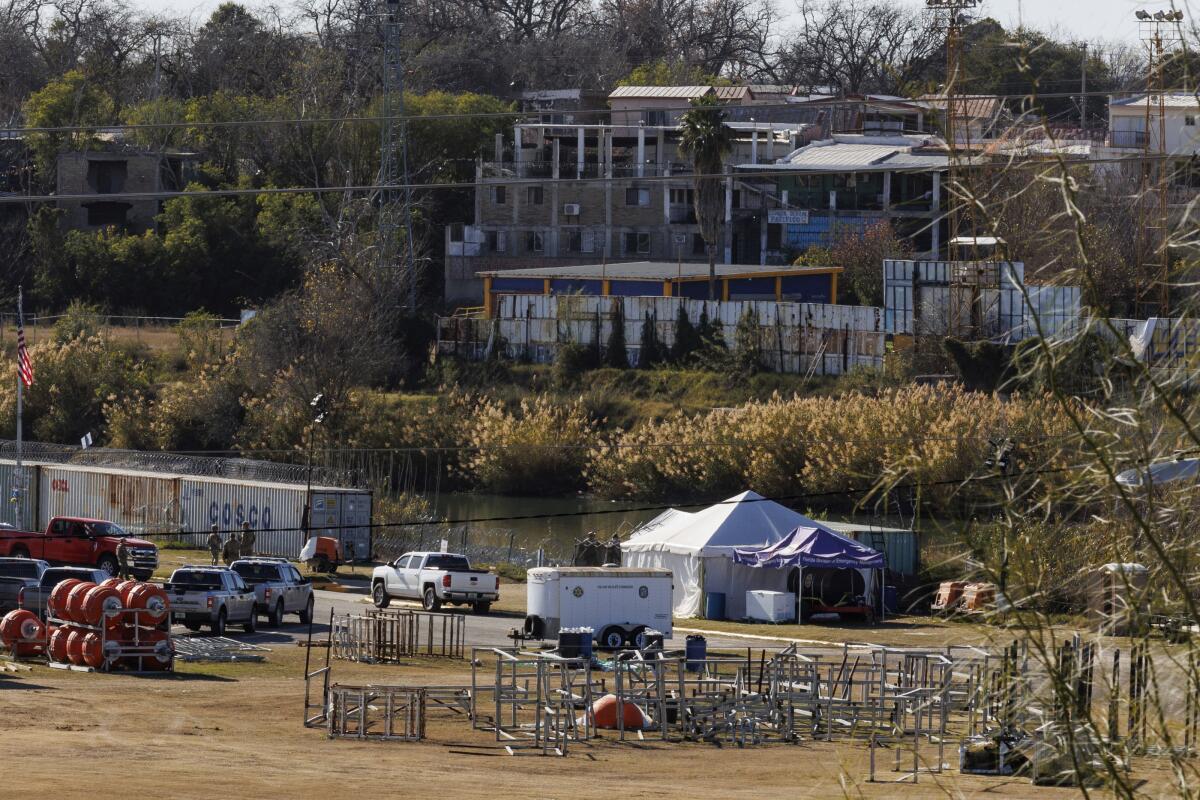A heartbreaking incident unfolded at the U.S.-Mexico border when three migrants tragically drowned, leading to a distressing revelation that Texas denied federal agents access to the border area during the rescue attempt. The U.S. Homeland Security Department disclosed the denial, contradicting Texas Representative Henry Cuellar’s claim that the state authorities obstructed Border Patrol agents from aiding the distressed migrants. The incident further fuels tensions between Texas and the federal government regarding immigration enforcement.

Escalating Tensions and Legal Disputes
The drownings occurred against the backdrop of escalating tensions between Texas and the U.S. government over immigration policies. The Justice Department informed the U.S. Supreme Court that Texas had taken control of a crucial area in Eagle Pass known as Shelby Park and was restricting Border Patrol access. Texas countered this claim, acknowledging control of the park but asserting that the federal government mischaracterized its actions. This clash underscores the ongoing legal and jurisdictional disputes between the state and federal authorities.
Tragic Consequences of Border Enforcement
The incident shines a spotlight on the perilous conditions migrants face while attempting to cross the border. Texas Governor Greg Abbott’s Operation Lone Star, aimed at intensifying border control efforts, has made Shelby Park a focal point. The park, a major entry corridor for migrants, has witnessed drownings as individuals are swept away by the Rio Grande’s currents. The tragic loss of lives and the federal-state standoff highlight the humanitarian challenges and policy clashes in the realm of immigration enforcement.
Humanitarian Concerns Rise as the Incident Unfolds
As the tragic incident unfolds, humanitarian concerns take center stage, raising questions about the adequacy of border enforcement policies. The denial of access to Border Patrol agents during a distress call underscores the complex interplay between state and federal authorities, potentially exacerbating the risks faced by migrants seeking a better life.

The incident serves as a stark reminder of the consequences of stringent border control measures and the pressing need for a comprehensive and compassionate approach to address the challenges of immigration while prioritizing human lives. The aftermath of these drownings prompts reflection on the ethical dimensions of immigration policies and their impact on vulnerable populations attempting perilous journeys to find refuge.